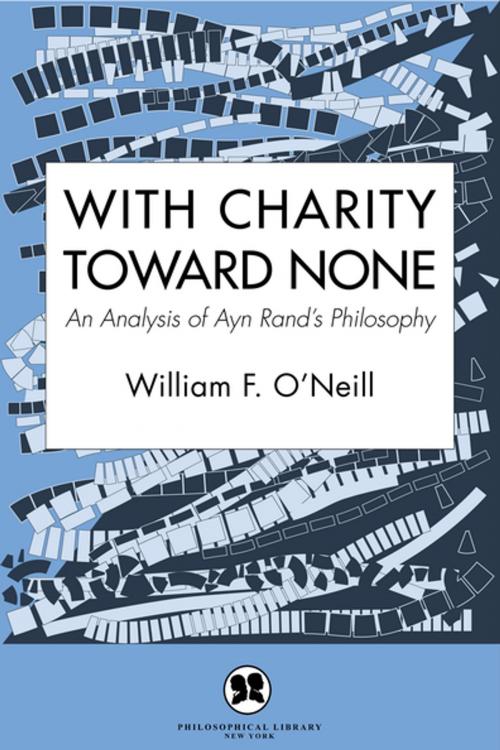With Charity Toward None
An Analysis of Ayn Rand's Philosophy
Nonfiction, Religion & Spirituality, Philosophy| Author: | William F. O'Neill | ISBN: | 9781504022828 |
| Publisher: | Philosophical Library | Publication: | September 8, 2015 |
| Imprint: | Philosophical Library | Language: | English |
| Author: | William F. O'Neill |
| ISBN: | 9781504022828 |
| Publisher: | Philosophical Library |
| Publication: | September 8, 2015 |
| Imprint: | Philosophical Library |
| Language: | English |
This book is a study of Ayn Rand’s philosophy of objectivism. It addresses three basic questions: What is objectivism? What is the full meaning of the objectivist point of view? And what are the basic social implications of objectivism?
The book is divided into two major sections. The first part summarizes Ayn Rand’s philosophy with respect to three basic areas of inquiry: (1) knowing and the known, (2) personal value and the nature of man, and (3) the ethics of objectivism. The second part consists primarily of a critical analysis of the ideas presented in the earlier pages.
The purpose of the study is to deal with Ayn Rand’s basic premises; only secondary consideration is given to the way in which these premises apply to specific problems in such areas as politics, economics and esthetics. Throughout, O’Neill is less concerned with criticizing what Rand says than with determining whether what she says makes sense in terms of established procedures for rational and semantic analysis and with respect to generally accepted principles for the scientific verification of evidence.
This book is a study of Ayn Rand’s philosophy of objectivism. It addresses three basic questions: What is objectivism? What is the full meaning of the objectivist point of view? And what are the basic social implications of objectivism?
The book is divided into two major sections. The first part summarizes Ayn Rand’s philosophy with respect to three basic areas of inquiry: (1) knowing and the known, (2) personal value and the nature of man, and (3) the ethics of objectivism. The second part consists primarily of a critical analysis of the ideas presented in the earlier pages.
The purpose of the study is to deal with Ayn Rand’s basic premises; only secondary consideration is given to the way in which these premises apply to specific problems in such areas as politics, economics and esthetics. Throughout, O’Neill is less concerned with criticizing what Rand says than with determining whether what she says makes sense in terms of established procedures for rational and semantic analysis and with respect to generally accepted principles for the scientific verification of evidence.















